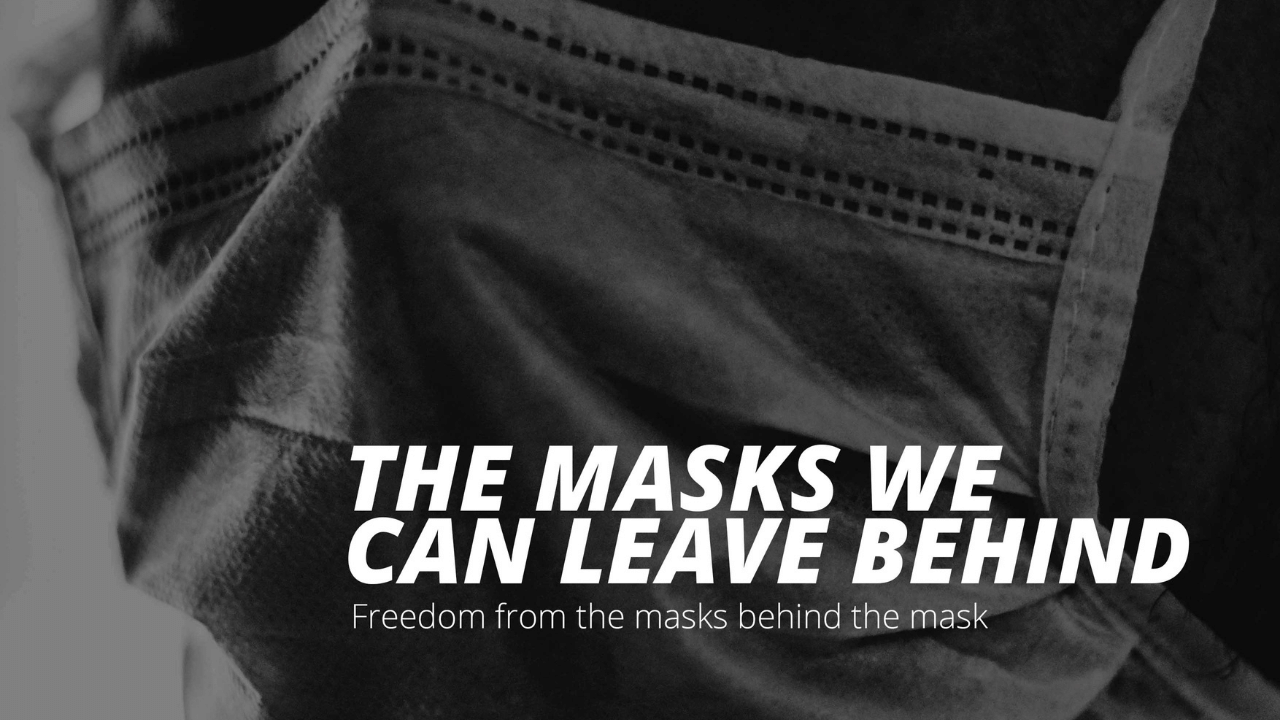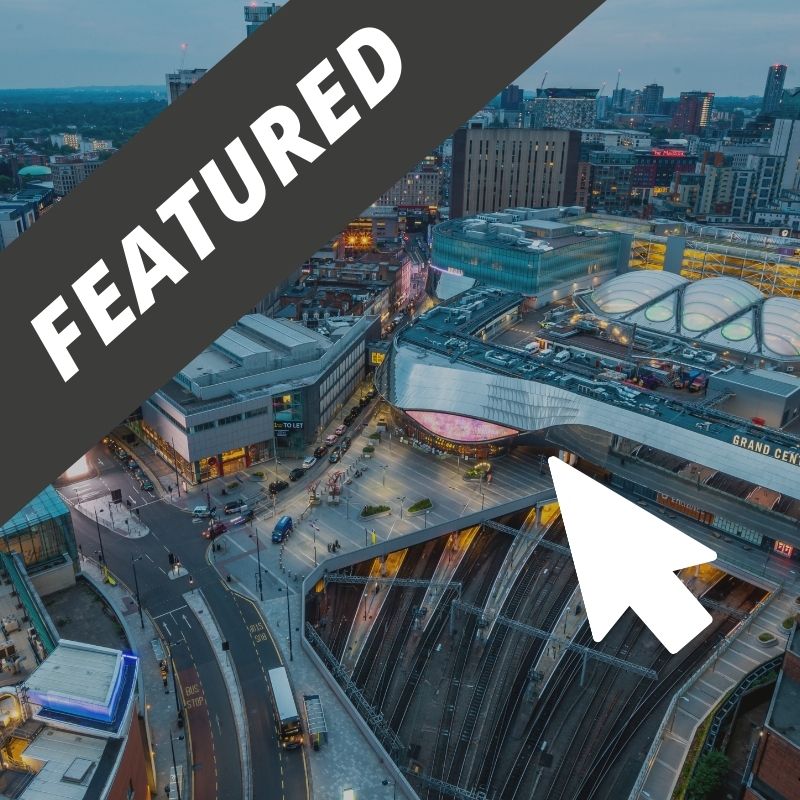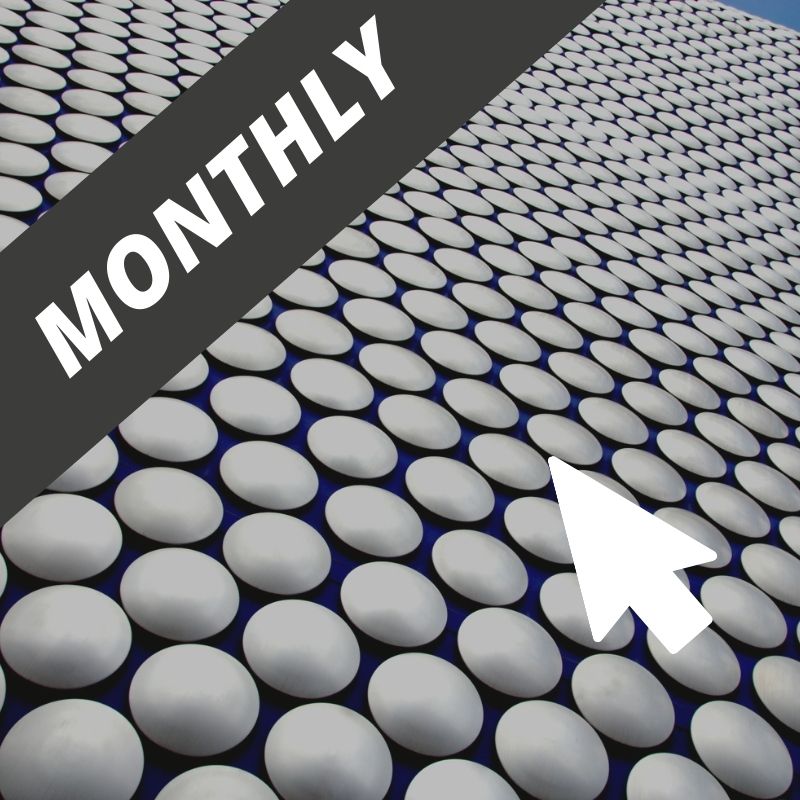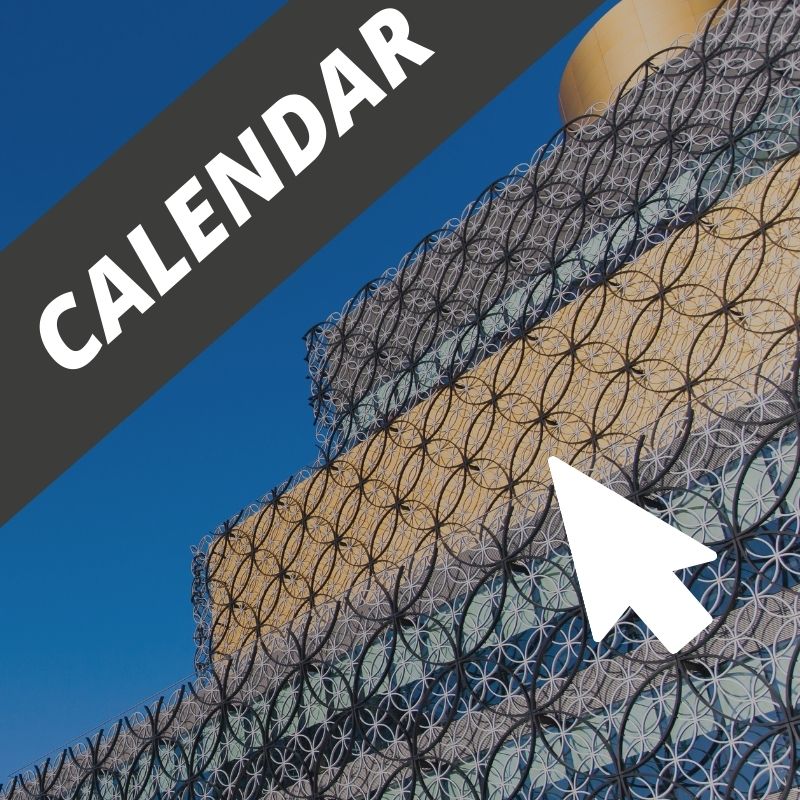Teaching Series Introduction:
In a world in which wearing masks can save lives, what other masks do we wear that we can take off? Masks that hide the reality of who we are, and what we are carrying? We all do it, but it gets so tiring. In Luke 12, Jesus offers a better alternative than the mask-wearing of the religious leaders. A life in which we don’t have to pretend. A life in which we reveal who we really are, and discover the freedom that Jesus offers.
Session 3
Title: The Mask of Age
By: Tim Chilvers
Date: 29 November 2020
Bible Passage: Luke (Chapter 12, verses 6-7)
At some point in our lives, we will have a day in which we look in the mirror and realise that we are not as young as we used to be. It’s called the mask of age; when we discover that we are older than we feel. As we become more aware of our mortality, a healthy understanding of how Jesus sees us, changes the value we place on ourselves.
Children’s Resources:
Youth Resources:
Resources are sent out to all parents each week. If you are not receiving these emails or would like to know about how you can get connect with our youth please contact: johng@riverside-church.org.uk
Transcript:
Hi friends. I don’t know about you, but it seems that in the last few days there’s been a shift. There’s hope in the air that because of these vaccines and because of the success of them, that this tunnel that we’ve been finding ourselves in over these months, since March, that there’s a glimmer of light that maybe we’re getting towards the end of the tunnel. And I don’t know about you when the Prime Minister said the other day that he thought that things would begin to look very different after Easter, there was almost a roar that you could hear around the nation that maybe, just maybe, hope is in the air.
And as we approach Christmas and the end of this year, it can be really easy to just look forward, longing for that day where we can see friends again and where we have no restrictions. How good will it be? How good will it be for a reunion Sunday where we can embrace each other and party like never before? Won’t that be great? I long for those days.
And yet, and yet, and yet I’ve had this stirring in my heart over these last few days that if we just long for that day, we can easily miss a huge gift that has been offered to us during this pandemic. That yes, it’s been hugely challenging. And for some of us it’s been devastating, whether it’s because of grief or ill health or financial issues or relational tension, there’s been huge challenge. And yet even in that devastation, the whole world has been forced to come face-to-face with the reality that we are not in control of our lives.
For decades, probably since the end of the Second World War, we have been trying to build lives of comfort and security and safety, for very good reasons. And certainly in our country and much of the Western world, we’ve largely distanced ourselves from the idea of death and the idea of mortality and the idea of frailty. And yet in these months, since March, all of us have realized that because of a tiny microscopic bug, we’re not in control of our lives. And for various different stages of life, that’s impacted us in different ways.
Let me read to you from a journalist called George Monbiot, who writes on environmental issues. As far as I know, he’s not a man of faith, but he writes this about the beginning of the pandemic. Amazing words. He said, “We’ve been living in a bubble, a bubble of false comfort and denial. In the rich nations, we’ve begun to believe we’ve transcended the material world. And now the membrane has ruptured. And we find ourselves naked and outraged, as the biology we appeared to have banished storms through our lives. The temptation, when this pandemic has passed, will be to find another bubble. We cannot afford to succumb to it.” He writes. “From now on, we should expose our minds to the painful realities that we’ve denied for too long.”
Or as another writer, Carey Nieuwhof says this. “Even when the truth isn’t what you want to see, the truth is still your friend.” And the truth is this that we aren’t in control of our lives. There’s a myth, an illusion of control. And for different people at different stages and with different ages. I think this pandemic has impacted us in different ways. But I want to suggest that there’s a question for all of us to ask as we get towards the end of this tunnel. And the question is simply this. What are you going to do with the rest of your life?
Whoever you are, however old you are, whatever stage of life you are, what are you going to do with the rest of your life? Because there’s no doubt about it. 2020 will go down in history of a moment of monumental change, where the globe shifted. Things will never be the same again. Pandora’s box has been opened. We’ve got potential for change in society, potential for change in our own lives. And the question is, what are you going to do with the rest of your life?
Do you long to rush back to just how things were in 2019? Or can things look very, very different for us? Because the words that have been read to us from Luke chapter 12, where Jesus is speaking of the religious leaders and these religious leaders that were presenting a mask to people of being impressive, but then living a very different way themselves. He’s reminding us in these very beautiful verses of how God sees us.
Let me read again to you. He talks of us being like sparrows. “Are not five sparrows sold for two pennies yet? Not one of them is forgotten by God.” In other words, sparrows are fleeting things, worthless in some respects. And yet not one of the sparrows is forgotten by God. So therefore, how much more worthwhile are you?
He goes on. “Indeed, the very hairs of your head are all numbered.” God knows every single hair, every tiny little follicle of you. Don’t be afraid. He says, “Therefore, you’re worth more than many sparrows.”
And I guess for many of us over these months, a sort of wave of realization that we’re not in control. That we’re mortal. That we can’t control our health. We can’t control our circumstances. We can’t even control our relationships. And this sort of fear has come in. And yet we long for the end of that challenge. We long for vaccination. Yes. But if we just long there and don’t come face-to-face with those realities, we miss a gift. And the gift is the question, what are you going to do with the rest of your life?
Ronald Rolheiser is a great author. And he talks of how our age and stage of life has a massive impact on the things that concern us. And particularly when it comes to matters of faith. Different people at different stages of life have different challenges and struggles and opportunities. And I want to read to you a quote that I think is worth us reflecting on. It’s at length, but it’s worth reflecting on here.
Here it is. “We struggle with different forces at various times in our lives. We’re always struggling and doing battle with something. But the forces that beset us change with the years. When we are young and still trying to establish an identity, those forces are very much embedded in the chaotic fiery energies of restlessness, wonder lust, sexuality, the quest for freedom, and the sheer hunger for experience. The struggle with these energies can be disorienting and overpowering, even though they’re the engines that drive us and propel us into adult life. And as we sought out more who we are, we make permanent commitments, take on more and more responsibilities, we soon find ourselves beset by a new set of struggles. Disappointment, tiredness, boredom, frustration, resentment. Consciously and unconsciously, we begin to sense that the big dream for our lives is over without its ever paying this huge dividends we expected. We become disappointed that there’s not more, that we’ve not achieved more and that we ourselves are not more, as we sense ourselves stuck with second best, reluctant to make our peace there.”
“And moreover,” he writes, “once the sheer pulse of life, so strong in us during our youth, begins to be tempered by the weight of our commitments and the grind of the years, more of our sensitivities begin to break through. And we sent more and more how we’ve been wounded and how life has not been fair to us. New demons then emerge, bitterness, anger, jealousy, and a sense of having been cheated. There comes a point in our lives,” he said, “when meaning must be predicated on something beyond the feeling we get from success and achievement.”
Friends, what he’s saying is this. At different stages of life, there are different challenges. But I want to suggest this pandemic has made us all, whatever age, whatever stage you’re at, made us all come face-to-face with the realities that we have a choice about the rest of our lives.
What are you going to do with the rest of your life? As things shift back to openness next year, what are you going to do with the rest of your life?
If it’s true that God knows every single hair on your head, we know without a shadow of a doubt you are loved beyond your wildest imagination, that the God of the universe gave his son for you. If we know that to be true, this next season of life presents us with massive opportunity and we need not fear. And so therefore, we can step forward with utter confidence.
Ronald Rolheiser suggests there’s three stages of life for the follower of Jesus. The first he talks about is that of essential discipleship. And that’s the struggle to get our lives together. That’s when we first start following Jesus and we try to get our orientation right on him. We’re struggling to get our lives together. And then the next stage he talks about is the stage of mature discipleship. The struggle to give our lives away. So having reoriented our life this, stage is where we then realize we’re not in it for ourselves, our own comfort, our own wellbeing. We’re in it to be a blessing to the planet, to give our lives away for the sake of others. Serving, that’s mature discipleship. But the third stage he says is this. And I think this is one that dare I say this year has made us realize. “Moving on from mature discipleship,” Rolheiser says, “is the stage of radical discipleship.”
And if mature discipleship, isn’t struggling to give our lives away, radical discipleship is the struggle to give our death away. Where we realized not only our life, but our death is in God’s hand too. And we’re willing to say, “Lord, come what may, I am yours.”
So what does that look like at the stage and age that you are? Because my observation is for many of us, we’ve responded to Coronavirus in different ways, depending on our stage of life. I think for some, because of the physical risk, for those that are over a certain age, for some it’s made you realize that you’re more frail than you feel. And that’s been a new realization, that you’re suddenly in a category now as vulnerable. Realizing that, what are you going to do with the rest of your life?
For others of us, we know we’ve reached that stage of life that we call retired. And having realized that this future retirement is out of your control, what opportunities do you have that you’ve begun to realize are there? So that your retirement may not just be a retirement, but maybe that old cliche, the opportunity to retire yourself. Like a car getting a new set of wheels, ready for the next journey. What opportunity, friends, do you have now? Coming face-to-face with your mortality, you realize you’ve got time and space and wisdom and years. Now, what are you going to do with the rest of your life?
For others of us, it may be that you know you’re in the last kind of 10 to 15 years of your career and your working life. And this whole moment has shifted that up because things have been thrown out. And the security is not there that you thought was. And all sorts of questions have come into your mind about what your future will look like, the legacy you’re going to leave behind. What opportunities do you have in this last 10 to 15 years of your working life to leave a legacy that is not based on you, but is for generations to come?
Let me read to you from Psalm 78, that speaks of the generational impact and the generational possibility. Psalm 78:6. Verse five, “He commanded our ancestors to teach their children so that the next generation would know them. Even the children yet to be born, and they in turn would tell their children.” And it seems that the ancient world was so aware that their lives were about the generations beyond them, not just now. And friends, if you’re at that stage of life, you begin to realize there’s that opportunity to invest in younger generations. They may be your own children. They may not be your own biological children. But there are people in your sphere you can invest in for the sake of the generations to come, decades after this moment. Because you’ve embraced this season of life. Because you come face-to-face with the reality that your life is not your own.
What about those of us with children? It’s been a challenge, I guess, for many of us, juggling life, jobs for some of us, homeschooling. And I think for some of us, we can easily forget the opportunity and the possibility that we’ve got with our own children. That the legacy we leave may not be through our jobs, may not be through the things we long and we dreamed of, but actually is the people that come after us. That in decades to come there will be people faithfully following Jesus. Proclaiming to the world the hope that is in Christ, because we spent hours, days being a loving, faithful, kind, godly mom, or dad, or aunt, or uncle, or friend. What are you going to do with the rest of your life?
What about those who are in their twenties and thirties? And I know, if I look back to those days for myself, there’s such potential, such opportunity ahead that it can be confusing to know what decisions to make. That you so long to make your life count that every opportunity in front of you, you know that if you choose that one, it’s a no to this one. And so therefore, you’re kind of crippled with indecision. Can I encourage you that this whole pandemic moment might be something to say, “Go for it.” Your life is outside of your control. So don’t flinch. This is your moment. Step up. Go for it. What are you going to do with the rest of your life starting now?
For those of us with circumstances that aren’t what we would choose, it might be that we haven’t got that partner we longed for, or that child we longed for, or that career aspiration we hoped for. We’ve realized during these days that things are out of our control anyway. And so therefore the question for us is, what are you going to do with the rest of your life? There are opportunities because of your circumstances that aren’t there, that if those things that you long for had happened. So what opportunity have you got for the generations after you, the generation through our nation?
And then there’s a final group of people, as I come to a close, and it’s this. For those people in their teenage years … As I was reflecting and praying about this and what I sense God has been doing in my heart. I wanted to speak to those who are in their teenage years. Who you know that you’ve got a growing sense of conviction in your heart for what you want to do with your life. And you’re not sure if it’s God, or if it’s just a gut, or a hunch. But you know, deep down there’s something in you. And you wonder that you’re just a bit young, or you’re not quite sure. Might I encourage you to ask the question, what are you going to do with the rest of your life?
I was listening to somebody speak the other day, who has in his life been involved in starting 7,000 churches. Seen astonishing impact because people have got to know Jesus through the ministry that he’s been involved with, all across Asia. And this interview of him was asked, “What do you stem that back to?” And he said this. He points back to a day when he was 13 and the pastor of his church gave him an opportunity to preach.
Guys, if you are a teenager and you have a burning conviction that even other people don’t understand around you, and you feel as though you’re a bit odd one out, but you sense it might be from God, can I say speak to me, to Judy, to Nathaniel, to Sarah, to any of the leaders here. We will take that seriously. Because you’ve got the potential now in a moment of massive global change to be the people that make history. So that question, what are you going to do with the rest of your life, is so important for you to seize this moment well.
With hope around the corner, let’s not be people who just settle back for comfort. Let’s embrace the opportunity that God might have for us. Knowing that he knows the hairs on your head. He cares for you more than the sparrows who are so beautiful. And so therefore, we can trust him with our lives, with our death, because he is in the business of building his kingdom in us and through us.
So friends, what are you going to do with the rest of your life? Lets pray.
And wherever you are, you might like to hold open your hands. And as you hold open your hands, your hands are empty. And in that moment, as is where you’re saying to God, “God, I’ve got nothing for you accept me. Lord, take me. Take my life. I give it to you, Lord. I don’t want to just settle back for mere comfort and for mere existence. God, I want my life to count. Use me for your glory,” we pray. Thank you, Jesus. Amen.
Study Questions
- During the heartache and challenge of this last year, what do you think has been the biggest realisation for our world? What has been the biggest lesson for our society from COVID-19?
- Read Luke 12:6-7. These beautiful verses remind us of how God sees us, whatever stage of life we are at. How does this give value and dignity to the age and stage you are at right now?
- Read Ecclesiastes 7:2. These words seem shocking to us in the western world. We don’t like the idea! What do you think the writer is trying to say? Do you agree?
- In light of what you have learnt from the last 9 months, how would you answer the following question – ‘What are you going to do with the rest of your life?’
- Read Psalm 78:1-8. Because of the lessons we have learnt over this year, and the fragility of life, how would the Psalm writer tell us to spend our time? What is the most significant thing we can be doing? What ‘praiseworthy deeds of the Lord’ (v4) can you think of that fall into this category?
- Regardless of whether you have your own children, living to leave a legacy for future generations so that they discover the ‘praiseworthy deeds’ of God in Jesus is a mind blowing opportunity! How does this differ from many of the ambitions we have in our society? What might this look like for you in practice?
- Take some time to pray, asking that God would help you live the rest of your life to ‘tell the next generation the praiseworthy deeds of the Lord.’






